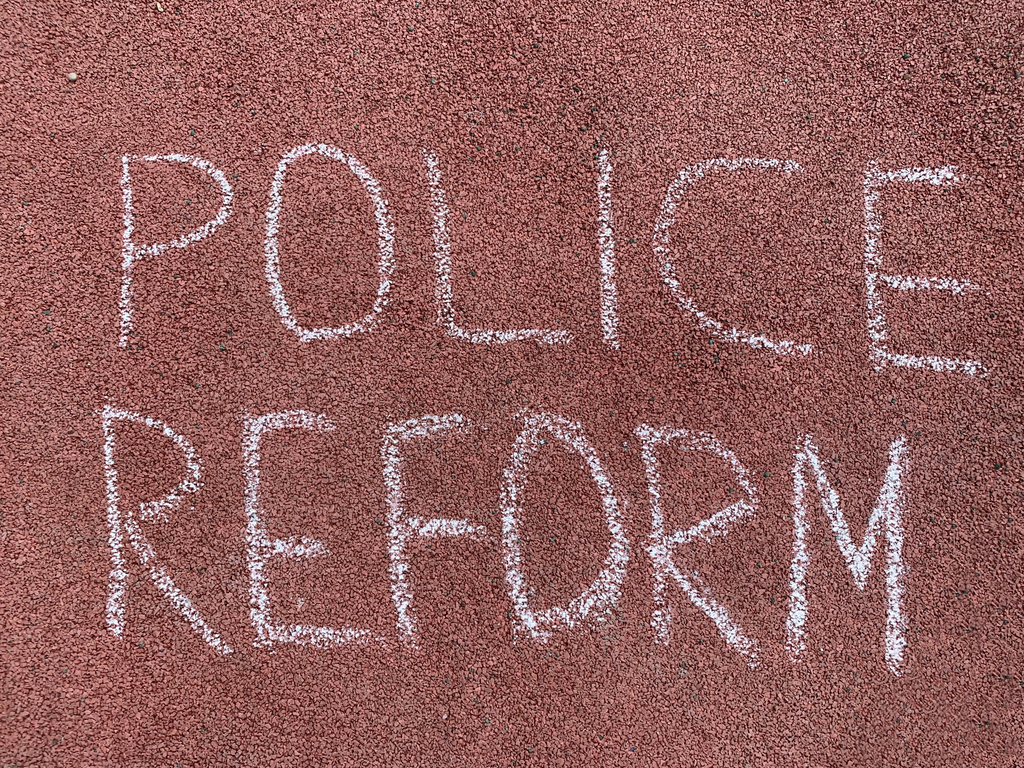[ad_1]
By Leonard Hamm, Richard Hite Jr., Wendell France, Henry Martin and Barry W.
Powell
Police departments across the country are caught up in the public outcry for police
reform. Demonstrations have taken place in major cities, not only in the United States but
also in other countries such as Canada and Germany as a result of the continued murder
of Black men in the United States (rising number of Black women being murdered)
mostly by White police officers. This current onslaught of protests resulted from the
recent and egregious murder of George Floyd by Minneapolis police officer Derek
Michael Chauvin, who applied a neck pinning use of force while Mr. Floyd was in a
prone, and helpless position face down on the ground that ultimately caused the death of
Mr. Floyd. Mr. Chauvin has since been fired from the police department and has been
charged with second degree murder.
As a result of Mr. Floyd’s death, a strong verbal outcry from many protestors has
mostly called for defunding the police. This does not mean that you take all the money
from a police agency. You cut its budget and, if possible, redirect those funds to other
human services programs. Many proponents for defunding police budgets have argued
that redirecting the money to increase programs for education, mental health, job training,
and recreation would better serve the needs of the community. We argue that if elected
officials decide to defund its police department it must also take some responsibility in
deciding what within that police budget is not beneficial to the community, and accept
the responsibility for any negative consequences that may occur due to the defunding.

Some protestors have called for getting rid of the police altogether. We know that
this simply cannot happen. Who are you going to call, for example, when your house is
burglarized while you are at work? Who are you going to call when your school aged
child is the victim of a horrendous crime?
Others protesting for police reform have advocated for the disbanding of its
current police force and starting anew. A reference to this last concept has been the
disbanding of the Camden City Police Department in New Jersey, which took place
around 2012, and, thereafter, a rebuild and rebranding of a new police department for that
city. Whether or not this drastic approach could apply to a city like Baltimore with a
population of over 600,000 and a police force of roughly 2500 police officers is highly
debatable. (Camden’s police department had 270 officers at the time of disbandment and
a population of approximately 70,000 residents.)
One thing, for certain, that must be included in the equation as we move to reform
policing is a reemphasis on community policing; creating a strong relationship between
the police and the community. That relationship is absolutely essential to foster effective,
fair and constitutional policing. The concept of community policing is nothing new.
However, it appears to have gotten lost somewhere along the line, although there have
been many advancements and innovative ideas in policing to prevent and solve crime.
We believe that the community should have input in deciding the type of police
force that it wants. In keeping with this idea we also believe that unreasonable demands
should not be placed on police services. One of the most unreasonable expectations
placed on the police officer is a call for a person in mental health crisis. Police, generally, do not have the requisite skills to effectively handle these calls. All too often injury
occurs to the person in mental health crisis during intervention by the police. Sometimes,
and unfortunately, death has occurred to the person in mental health crisis during
intervention by police. Police themselves are also vulnerable to injury in these types of
situations.
Training that enables a police officer to “recognize” a person in mental health
crisis is not the same as training required to effectively “de-escalate” a person in mental
health crisis. The latter training takes far more time than training offered in a police
curriculum. It requires persons specifically trained for that purpose. Mental health
clinicians are specifically trained to address the type of situation that involves a mental
health crisis. Although police are here to help the community solve its problems, there are
some situations, i.e., mental health crises that are beyond the purview of the role of a
police officer.
I think we all would agree that police reform is needed. It will not occur, however,
if there is an adversarial relationship between the police and the community that prevents
a shared role to shape policing for today. The police should not decide in a vacuum. The
community should not decide in a vacuum. It should be a collaborative process with
many stakeholders that comprise the community.
The question we all should be asking is, “What do we want our police to do and is
it reasonable for us as a society to expect them to have the capability to do it?”
The writers/collaborators for this editorial are retired members of the Baltimore Police
Department. Each is a former president of the Vanguard Justice Society, an African
American advocacy group with its membership being active and retired Baltimore Police
Officers. All are currently involved in the criminal justice/legal arena in some capacity.
Leonard Hamm (hammrules1@gmail.com)
Richard Hite, Jr. (rhitevjs@aol.com)
Wendell France (Francegroup@comcast.net)
Henry Martin (henry37201950@gmail.com)
Barry W. Powell (bwpowell@msn.com)
The opinions on this page are those of the writers and not necessarily those of the AFRO. Send letters to The Afro-American • 1531 S. Edgewood St. Baltimore, MD 21227 or fax to 1-877-570-9297 or e-mail to editor@afro.com
[ad_2]
Source link

